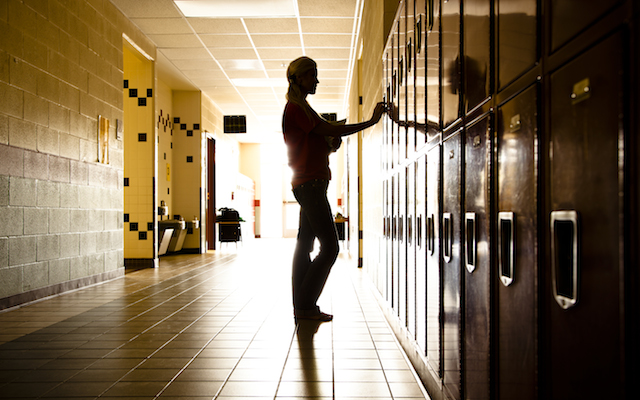A veteran year 7 teacher’s advice for starting high school
Veteran secondary school teacher Mike Symons from Plenty Valley Christian College in Victoria sees hundreds of new students walk through the school gates each year.
And he knows that many of them will be nervous about the changes and challenges that come with high school.
Symons says it’s not just the additional homework that fills kids with a sense of trepidation.
“The expectation that as a high school student, you’ll be more organised about your work and daily schedule, and you’ll be able to socialise with new students in much less nurturing environments, can be quite confronting,” he says.
To help your kids (and you!) make a calmer, more confident transition to high school, here are four ways to get your kids ready for what’s next:

Secondary school is a big change
1. Buy a diary and practice using it
As high school students, your kids might have as many as six or seven classes in a day and should get used to the idea of using a diary to keep track of tasks, locations, and things they need to bring to school.
Diaries are also key to maintaining an open line of communication between teachers and parents, so be sure to set a time to review notes and actions with your child each week.
2. Research activities offered at school
While most activities at primary school are predetermined, your child will have more choice when it comes to both subject electives and extra-curricular activities at high school.
Encourage your child to research the activities offered by their new school and identify the ones they’re interested in, whether it’s sport, music, or extra-curricular groups, Symons advises.
As with anything, you get out what you put in.

Prepare your child for the challenges of making new friends
3. Practise socialising beyond comfort zones
If your child is going to the local high school – along with most of their primary school class – the temptation will be to stick with the same comfortable clique.
But it’s important to encourage your child to make new friends.
“New students should be prepared to meet new people”, Symons says. “They shouldn’t restrict themselves to only a couple of old friends, but rather enjoy meeting new groups with a variety of different interests.”
There’s a good chance that the friends your child makes in secondary school will last them the rest of their lives.
4. Discuss concerns ahead of time
Being nervous about a new experience is completely normal.
Be sure to discuss your child’s concerns long before school begins and reassure them that feeling nervous is common.
While the first few days (or weeks) may seem daunting, high school will prove to be a fun and experience if you all go into it with a good attitude.


 has the facebook
has the facebook




